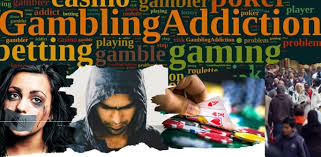
Gambling in Pakistan, despite being illegal under the Prevention of Gambling Act of 1977, remains an increasingly widespread phenomenon. While gambling is often seen as a vice of the elite or the well-off, its effects reach far beyond affluent circles. The illegal gambling economy in Pakistan has deep-rooted consequences for the country’s poor and marginalized populations. From underground casinos to online betting platforms, illegal gambling activities continue to thrive, fueled by desperation, social inequality, and the lure of quick wealth. But for the poor, these activities rarely offer the promised riches—instead, they perpetuate cycles of financial ruin, addiction, and social instability.
The Widespread Accessibility of Illegal Gambling
In Pakistan, gambling is illegal in all forms, and yet it remains pervasive, particularly in the form of street betting, underground casinos, and online gambling platforms. Major cities like Karachi, Lahore, and Rawalpindi host clandestine gambling rings where people from various walks of life gather to gamble on sports, play card games, or participate in high-stakes betting on everything from horse races to cricket matches. In recent years, online betting has also gained popularity, with a large number of young Pakistanis turning to mobile apps and websites to place bets on national and international cricket matches, particularly during major events like the Pakistan Super League (PSL) or international matches between Pakistan and India.
For the country’s poor, illegal gambling offers an easy—and often, the only—way to escape financial hardship. In a society where job opportunities are limited, and economic inequality is rampant, the promise of winning big through gambling acts as an alluring escape. This accessibility is further bolstered by the fact that illegal gambling operations often target neighborhoods with high poverty rates, where the lure of quick money is most enticing. Whether it’s betting on cricket matches or participating in underground casinos, the poor are frequently drawn into the world of gambling, believing it could offer a shortcut to financial freedom.
The Financial Impact on the Poor
For many low-income individuals, gambling represents an act of desperation—a hope to overcome the daily struggles of poverty, unemployment, or low wages. However, this hope is often misplaced. The odds of winning in gambling are heavily skewed in favor of the house, and most gamblers eventually lose more than they win. This reality leads to devastating financial consequences for the poor.
Gambling addiction is particularly rampant among those who are already financially vulnerable. The need to make money quickly can lead people to borrow money, either from family, friends, or even loan sharks, in order to fund their gambling habits. In many cases, gamblers end up sinking further into debt, unable to repay loans or meet basic living expenses. For these individuals, gambling becomes a vicious cycle—one that causes escalating financial stress and leaves families in poverty, with no means of escape.
In the worst cases, individuals and families are left destitute. Money that could have been used for food, education, healthcare, or other essential needs is instead lost to gambling. Families are torn apart by the financial strain, and in some cases, the addiction to gambling may lead to other destructive behaviors, such as theft, drug use, or domestic violence, further complicating the lives of those already facing significant hardships.
Social and Psychological Consequences
The social and psychological consequences of gambling addiction among the poor in Pakistan are profound. Beyond the immediate financial losses, gambling leads to a breakdown of family structures, increasing rates of divorce, and strained relationships between parents, children, and spouses. As gambling becomes a more persistent part of a person’s life, their emotional and psychological well-being is often the first to suffer. The stigma of addiction, combined with feelings of shame and guilt, can exacerbate mental health issues, such as depression and anxiety.
In poorer communities, where support networks are already stretched thin, those struggling with gambling addiction often lack the resources or social support needed to recover. There is little understanding of gambling addiction as a psychological issue, and the stigma surrounding both addiction and mental health means that people are reluctant to seek help. For the poor, gambling is often seen as a moral failing rather than a complex behavioral disorder, which further isolates them and prevents them from seeking rehabilitation or counseling.
At a community level, the prevalence of gambling contributes to social instability. As families experience financial ruin and individuals fall deeper into addiction, entire neighborhoods may be affected by the resulting dysfunction. In some areas, gambling has become so normalized that it is no longer seen as a vice but as a way of life. This normalization contributes to the erosion of social values and further perpetuates the cycle of poverty and addiction.
The Role of the Informal Economy in Gambling
The informal or “black” economy plays a significant role in Pakistan’s illegal gambling sector. In impoverished areas where formal banking or financial services are limited, underground gambling becomes an alternative way of generating income. Many low-income individuals work as agents, bookies, or facilitators of illegal gambling activities. These individuals often have no other employment opportunities and turn to gambling as a means of survival. While they may make small amounts of money from their involvement, they too are caught in the cycle of the illegal gambling economy.
This informal economy is further perpetuated by the lack of legal enforcement and regulatory oversight. Law enforcement agencies are often unable or unwilling to address the issue of illegal gambling, especially in areas where poverty and corruption are prevalent. In many cases, local authorities turn a blind eye to gambling activities, either due to lack of resources or because they too are beneficiaries of the informal economy. As a result, the underground gambling market flourishes unchecked, further entrenching the poverty that fuels it.
The Psychological Trap: Gambling as a Coping Mechanism
For many poor Pakistanis, gambling becomes a coping mechanism for the pressures of everyday life. Financial insecurity, lack of access to quality education, and limited job prospects create an environment where gambling offers a temporary escape. The promise of winning big—or even just breaking even—provides a brief sense of hope, especially in an environment where opportunities for upward mobility are limited.
However, this sense of hope is fleeting, and gambling addiction often leads to a deeper sense of despair. As individuals lose more money, they may attempt to “chase” their losses, believing that a big win is just around the corner. This phenomenon, known as the “gambler’s fallacy,” is a psychological trap that often leads to even greater losses. The emotional toll on those who gamble becomes compounded by the pressures of life in poverty, which increases the likelihood of developing long-term mental health issues, including depression and anxiety.
The Need for Education and Intervention
Addressing the impact of gambling addiction on Pakistan’s poor requires a multi-faceted approach. First and foremost, there needs to be greater awareness of gambling addiction as a psychological and behavioral issue, not just a moral failing. Mental health professionals and addiction counselors must be trained to recognize the signs of gambling addiction, and communities must be educated on the risks associated with gambling.
There is also a need for greater regulation and enforcement of gambling laws. Authorities must take a stronger stance against illegal gambling operations, especially in areas where poverty is rampant and gambling addiction is widespread. Increasing penalties for those involved in running underground casinos and betting operations, while strengthening efforts to break up these criminal networks, could help reduce the accessibility of illegal gambling.
Finally, there is a need for more comprehensive social safety nets and economic opportunities for the poor. Without access to education, employment, and social services, low-income individuals are more likely to turn to illegal gambling as a way to escape their circumstances. Creating more opportunities for upward mobility and reducing the wealth gap in Pakistan could help alleviate the root causes of gambling addiction among the poor.
Conclusion
Pakistan’s illegal gambling economy is a significant social problem that has profound consequences for the country’s poorest communities. Far from offering an escape from poverty, gambling often deepens financial insecurity, exacerbates addiction, and leads to devastating social and psychological consequences. For many Pakistanis living in poverty, gambling is not just a vice—it is a desperate attempt to change their lives, but it ultimately traps them in a cycle of despair. Addressing this issue requires greater awareness, stronger enforcement of gambling laws, and investment in social programs that provide alternatives to gambling. Only by confronting both the economic and psychological factors driving gambling addiction can Pakistan hope to mitigate the devastating impact it has on its most vulnerable populations.
Experience Thrills and Big Rewards at KKClub Casino – Pakistan’s Premier Gaming Hub!



